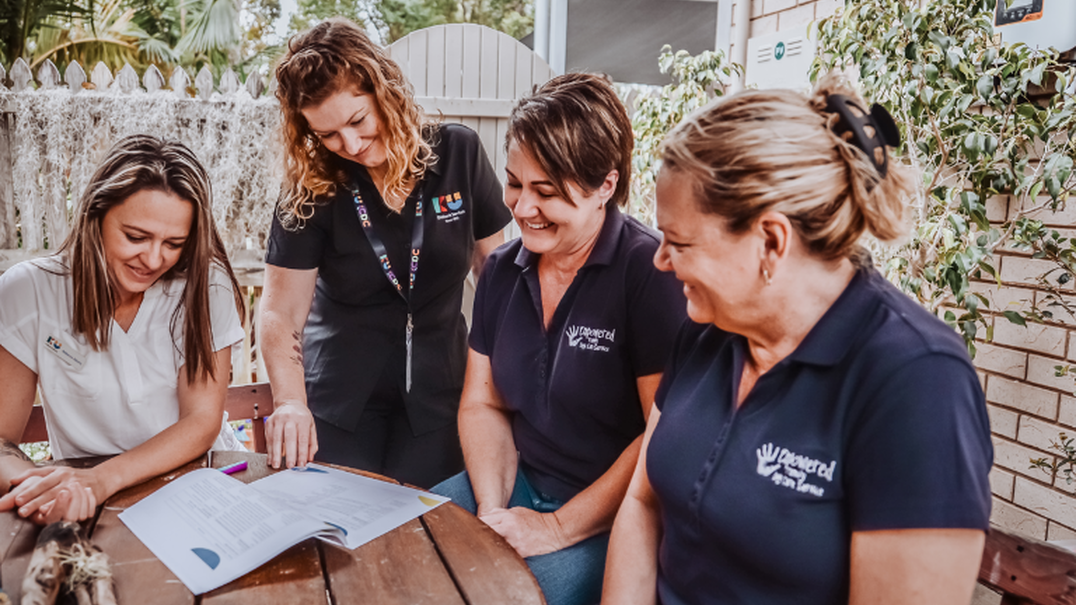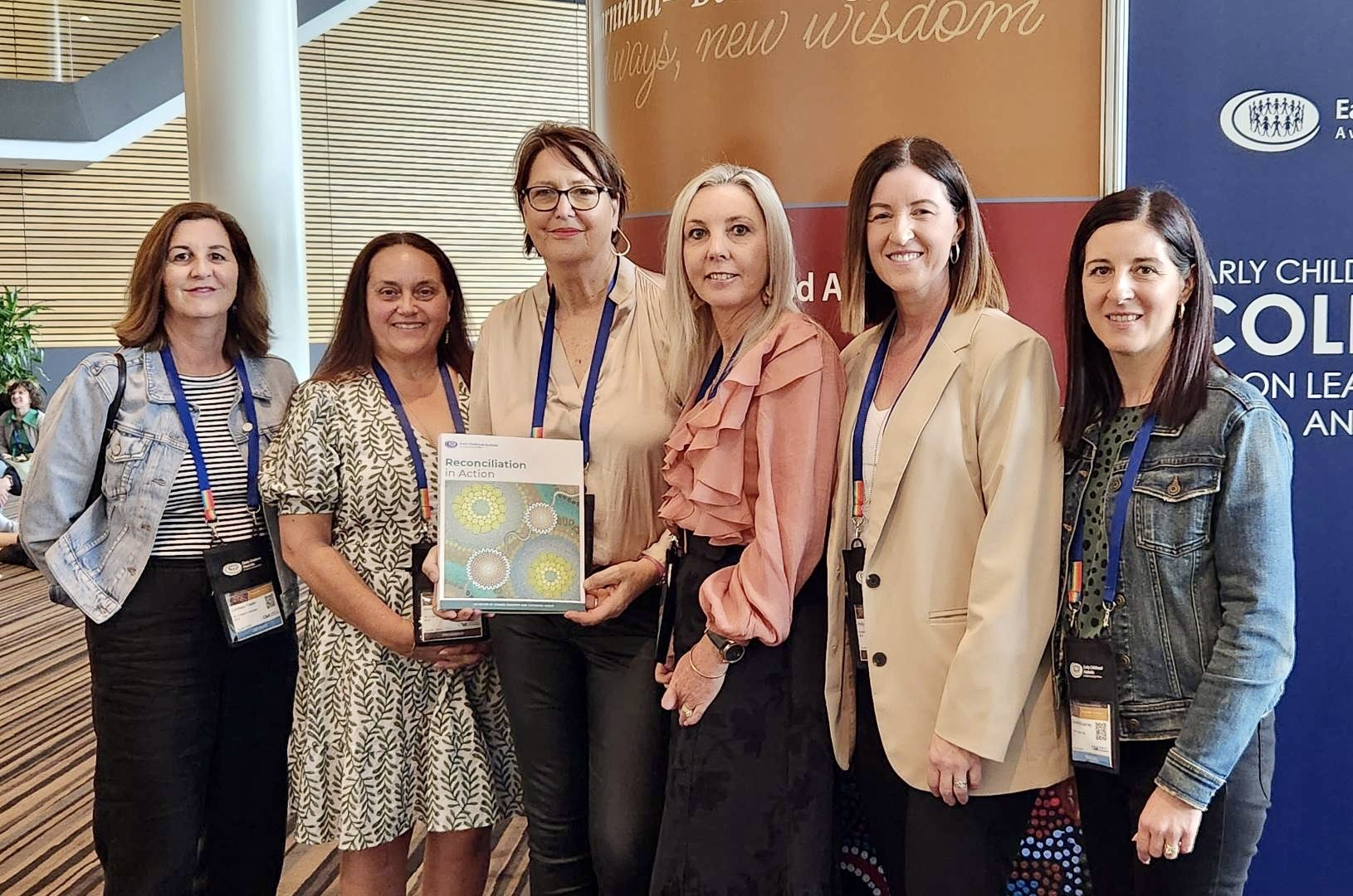Relationships are key: Engaging with Family Day Care
Read how Empowered Family Day Care worked collaboratively with Inclusion Support QLD to engage in critical reflection to support the inclusion of all children.

Written By Narragunnawali: Reconciliation Australia.

Formalising a collective commitment to reconciliation through the establishment of internal and external networks recognises the importance of relationships, and the value of working collaboratively to exchange learnings and progress reconciliation initiatives. A prime example of this principle in action is the Mobo Jarjums community of practice group. With support from Inclusion Support Queensland, this group exemplifies the positive outcomes that can be achieved through effective networking.
Inclusion professionals, Kimberley Simeon-Brown and Holly Radnedge, two of the facilitators of the Mobo Jarjums community of practice group, share the group’s vision of enriching early childhood education through respectfully embedding Aboriginal and Torres Strait Islander perspectives and promoting a more inclusive, culturally safe environment for learning.
The initiation of Mobo Jarjums was driven by the Gold Coast Inclusion Support team. The aim and focus of the group was to deepen connections with the local Aboriginal and Torres Strait Islander community, leading to the establishment of a community of practice group where educators could engage in meaningful discussions in a culturally safe environment. The name 'Mobo Jarjums' - meaning 'for tomorrow's children' in the local Yugambeh Language - emerged from a collective desire to reflect the group's purpose. This purposeful naming was a collaborative effort of educators, supported and enriched by consultations with the First Nations community.
For Kimberley, reconciliation is an evolving journey of re-learning, reflecting and engaging deeply with community knowledge and perspectives. ‘It's about continually updating our understandings based on what we learn from our connections with the community,’ Kimberley emphasises, highlighting the dynamic nature of this journey. Holly adds depth to this vision, considering reconciliation as an understanding of the why behind including Aboriginal and Torres Strait Islander perspectives in education environments and experiences. Holly is particularly passionate about the importance of truth-telling and deep listening to support community-driven efforts towards a more equitable future.
The Mobo Jarjums group, supported by the Inclusion Support Queensland (ISQ) Gold Coast Hub, continue to meet every six weeks to provide educators with an ongoing opportunity to share ideas and reflect on their practices. Rotating meeting locations and facilitation duties between various early childhood services allows a vibrant exchange of ideas and good practice examples, strengthening the collective learning of the community of practice. Kimberley and Holly detailed how these meetings serve as a platform for dialogue and a conduit for better understanding of how to include Aboriginal and Torres Strait Islander peoples’ perspectives respectfully and responsively across educational settings. ‘The growth of the group has been a testament to the community's engagement and willingness strengthen their learning’, Holly reflects, underlining the continued commitment of educators to the success of the group.
Mobo Jarjums is dedicated to genuine engagement with First Nations people, and welcomed Billie, an Aboriginal and South Sea Islander artist and educator, to group meetings to strengthen cultural connections. Billie's enthusiasm for enhancing education with her art and narratives has made a significant contribution to deepening the group's discussions on First Nations histories and continuing traditions, in alignment with its aim for a more inclusive and knowledgeable future of early childhood learning.
As heard in the reflections from Kimberley and Holly, the positive impacts of the Mobo Jarjums initiatives extends beyond the immediate educational settings, touching the hearts and minds of educators, children, and community members alike. The initiative provides a good example of how early childhood education is intrinsically linked with Australia's First Nations peoples' rich histories, cultures and languages. ‘Our meetings are more than just a meeting; they're a movement towards a more inclusive, understanding and respectful future’, Kimberley asserts, envisioning a pathway to reconciliation through relationship-building, networking, education and respectful knowledge-sharing.
The collaboration between the Gold Coast Inclusion Support team, educators and Aboriginal community members to establish the Mobo Jarjums group, is an inspiring example of how educators can come together and share learnings about how to respectfully incorporate the histories, cultures and contributions of Aboriginal and Torres Strait Islander peoples into learning environments.
Thinking about developing a community of practice towards professional learning and reconciliation in your own local context? Visit the Narragunnawali website for some ideas for action!